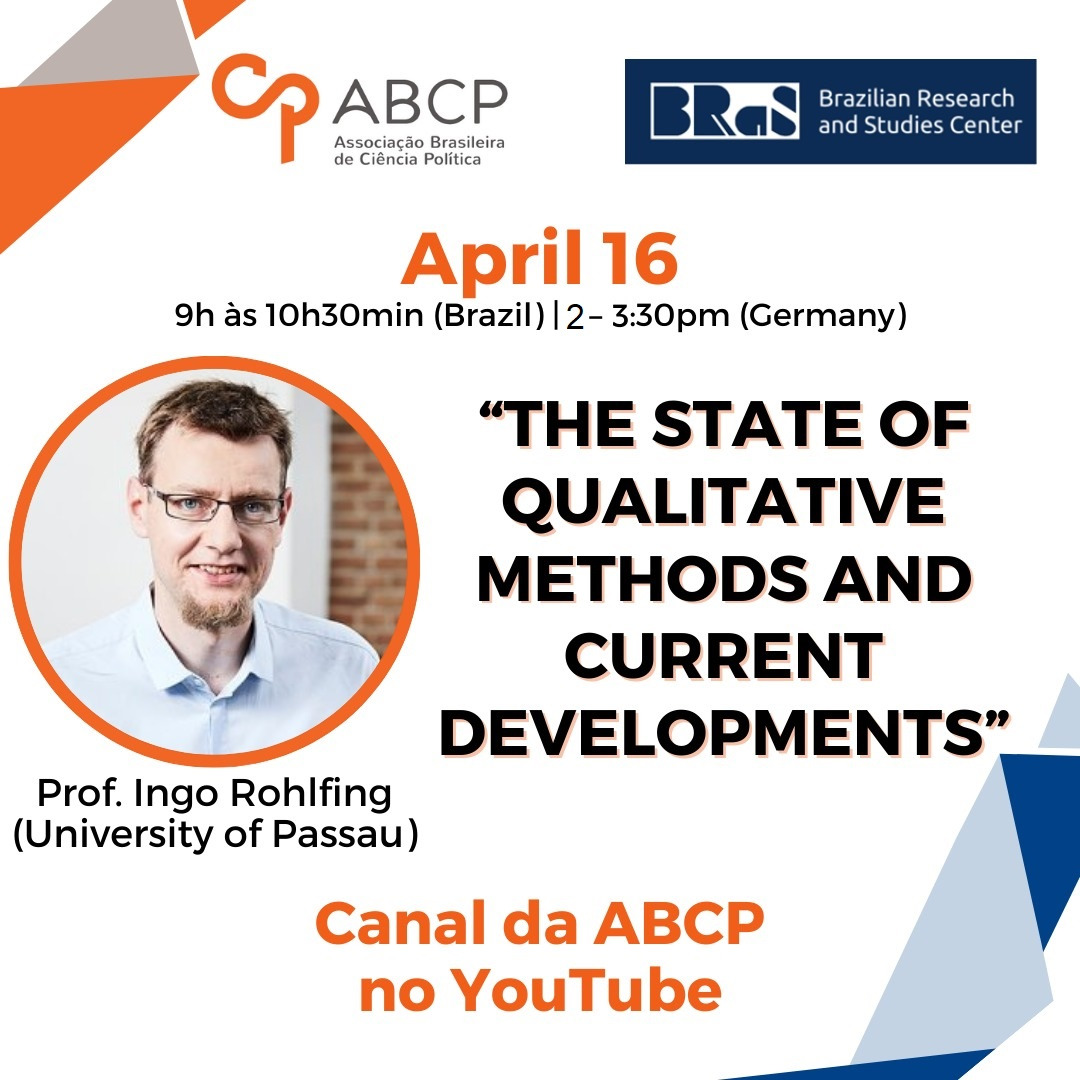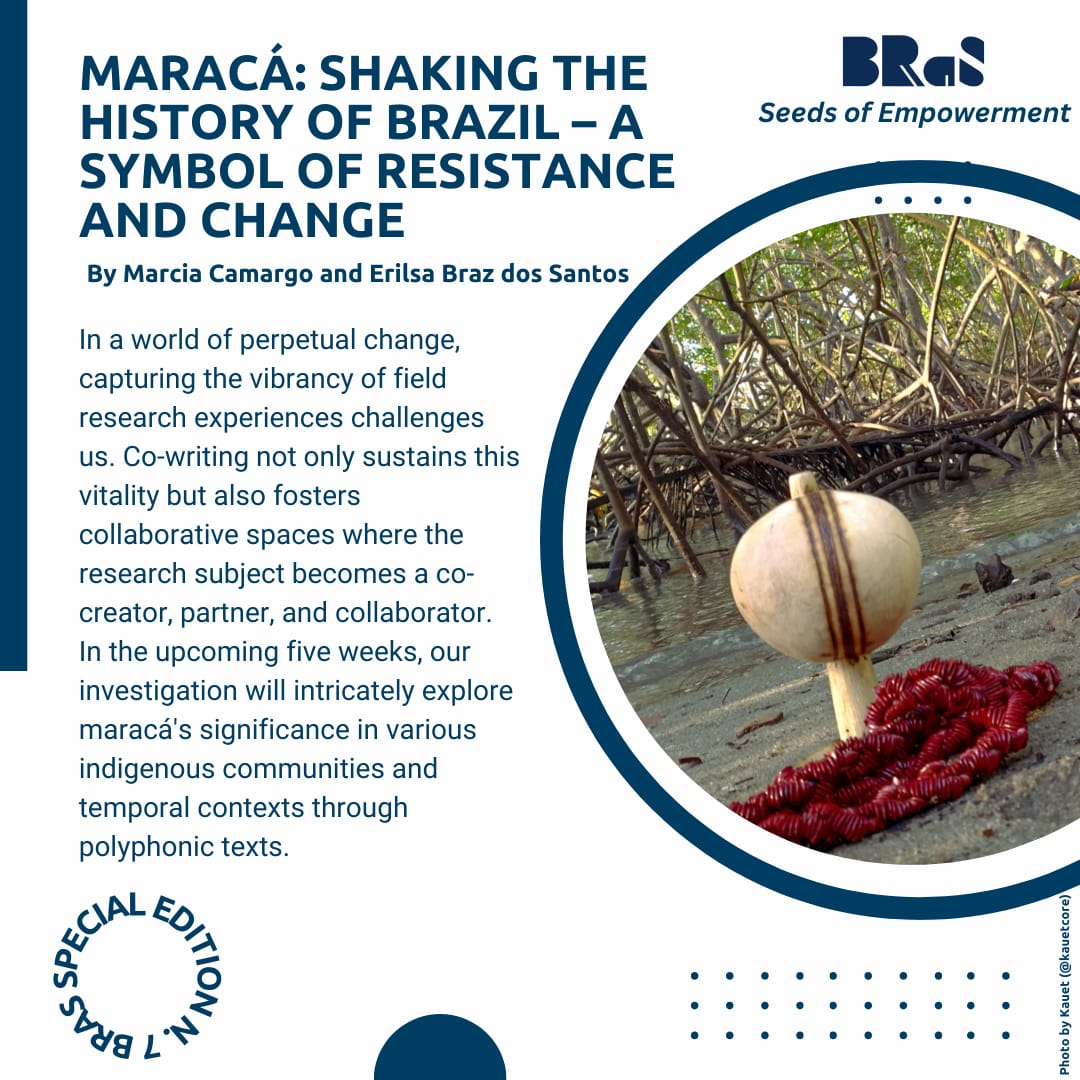by Claudia Pires de Castro
In a world of constant change, capturing the vibrancy of field research experiences is a challenge. Co-writing sustains this vitality and fosters collaboration, turning the research subject into a co-creator. Bakhtin’s wisdom underscores the power of words to connect us with others. Writings between indigenous peoples and nonindigenous today means immersing in multifaceted identities and deconstructions. The maracá’s resonance is central for indigenous people in Brazil, connecting them to heritage and nature.
As a research and studies center, BRaS aims to promote and support collaborative works. Our Special Edition (SE) nº 7, coordinated by Ph.D. candidate Marcia Camargo, will intricately explore maracá’s significance in various indigenous communities and temporal contexts through polyphonic texts. The essence of these experiences is often vivid and multifaceted, filled with rich interactions and deep insights. It is through the act of co-writing that we not only preserve this vitality but also create collaborative spaces where the research subject is not an object of study but an active co-creator, partner, and collaborator in the research process. This collaborative approach transcends traditional research paradigms, fostering a more inclusive and holistic understanding of this subject.





